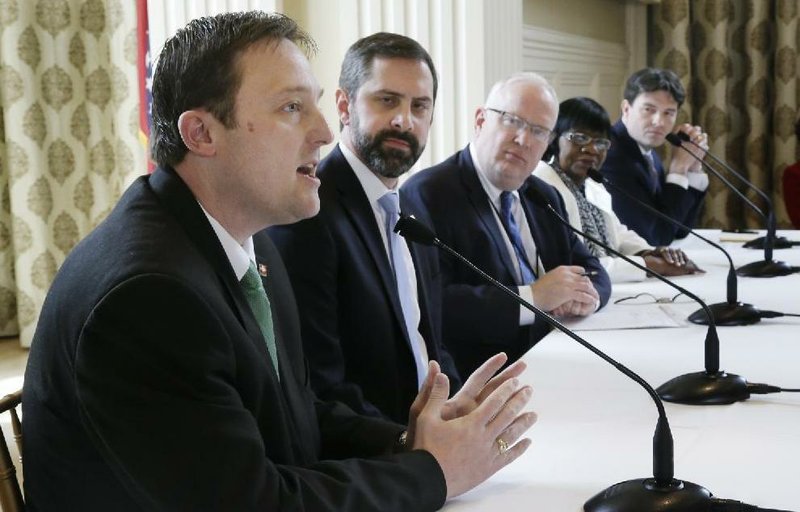LITTLE ROCK — The incoming speaker of the Arkansas House says he sees economic development as the top priority for next year's legislative session, and he is leaving open the possibility that lawmakers can address highway funding issues, too.
Republican Rep. Jeremy Gillam, who will take over as the chamber's leader next month, said he believes efforts to cut taxes, overhaul the state's workforce education program and to address road needs are key to improving the state's economy.
Lawmakers convene for their next session on Jan. 12.
"I think the biggest thing we can do is create an environment for economic development through the policy decisions we have at our disposal," Gillam said in a recent interview. "Just making sure you can start a business in Arkansas and create jobs organically that way, to create an attractive climate for relocation as well as creation are the big things we can do."
Gillam and Senate President Jonathan Dismang, R-Beebe, are co-sponsoring the legislation for Gov.-elect Asa Hutchinson's proposal to cut taxes for the middle class by $100 million a year. Hutchinson, a Republican, made the tax cut pledge a centerpiece of his successful bid for the governor's office.
Gillam said "there may very well be" room for tax cuts beyond Hutchinson's proposal.
"I think that's something we're going to have to wait and see," Gillam said. "As the session unfolds on us, we'll see which members have brought new ideas and see how they fit in with the overall equation."
Gillam said it's possible lawmakers could also work on highway funding, and said diverting some general revenue to pay for roads should be considered as an option. A proposal that would have transferred sales tax dollars from new and used vehicle sales to the state highway department and local governments failed before a House committee in last year's session.
"They're going to have to have funding. That's a given," Gillam said.
State highway officials have said they still face a funding gap, even with a voter-backed sales tax increase that took effect last year and the extension of a road bonds program approved in 2011.
Gillam said in March that he wanted to avoid the "drama" that has surrounded past debates over the future of the state's Medicaid expansion. He said he still thinks that's possible, despite the election of several new lawmakers who ran on vows to kill the "private option" expansion.
"I still think we're headed toward a very responsible resolution on that, and I think it's going to be one we'll be able to handle without a lot of extra dramatic fanfare," he said.
More than 213,000 people are receiving coverage through the "private option," which was crafted as an alternative to the Medicaid expansion envisioned under the federal health law. The program uses federal funds to purchase private insurance for low-income residents.
Gillam also said he's not sold on building a new prison to ease overcrowding of state inmates throughout local jails. State corrections officials are expected to seek approval for building a $100 million prison next year. Gillam said he thinks other ideas need to be explored first.
"I think there's still so many options on the table that have not been thoroughly vetted and gone through yet to just automatically jump to, we have to build a new prison," Gillam said.
